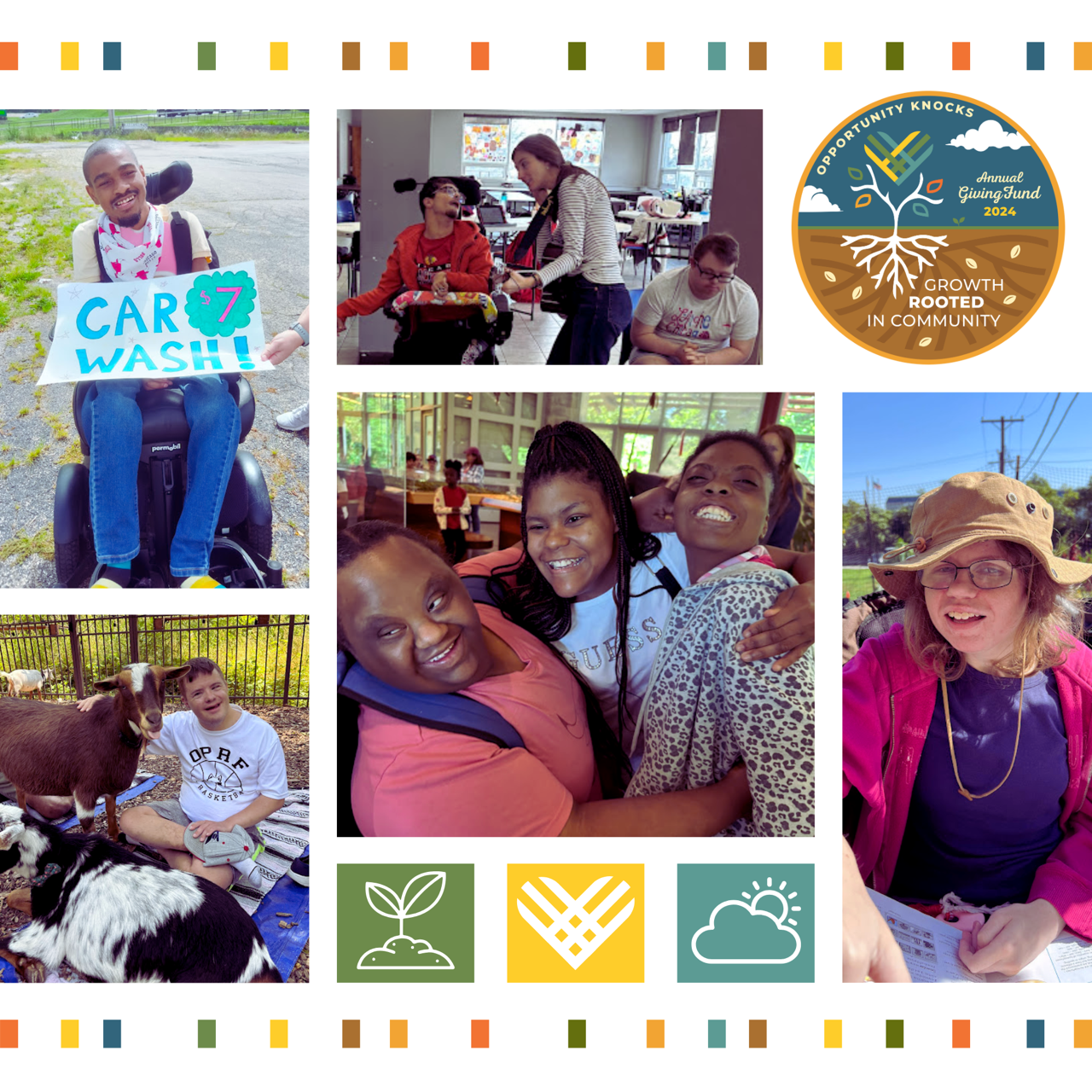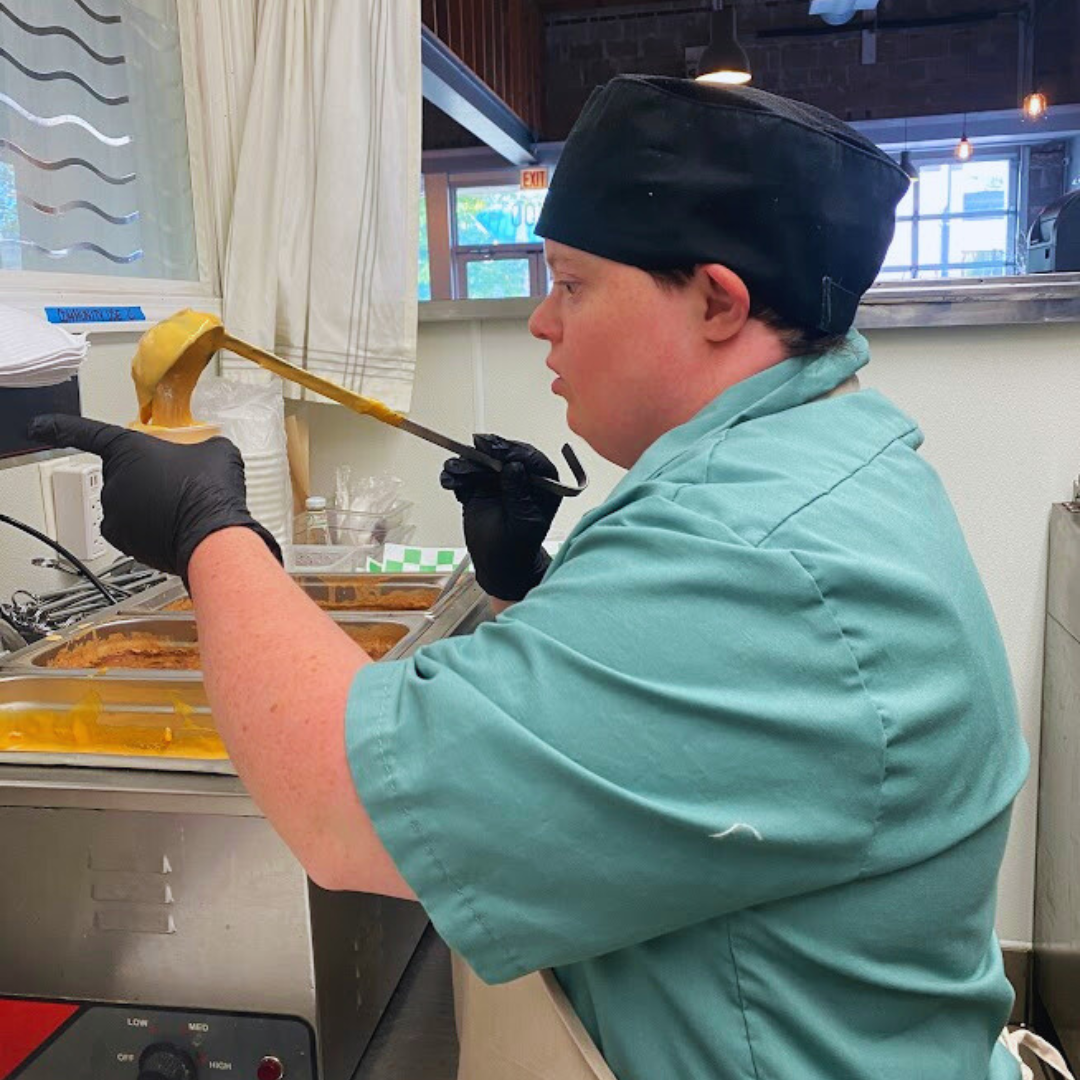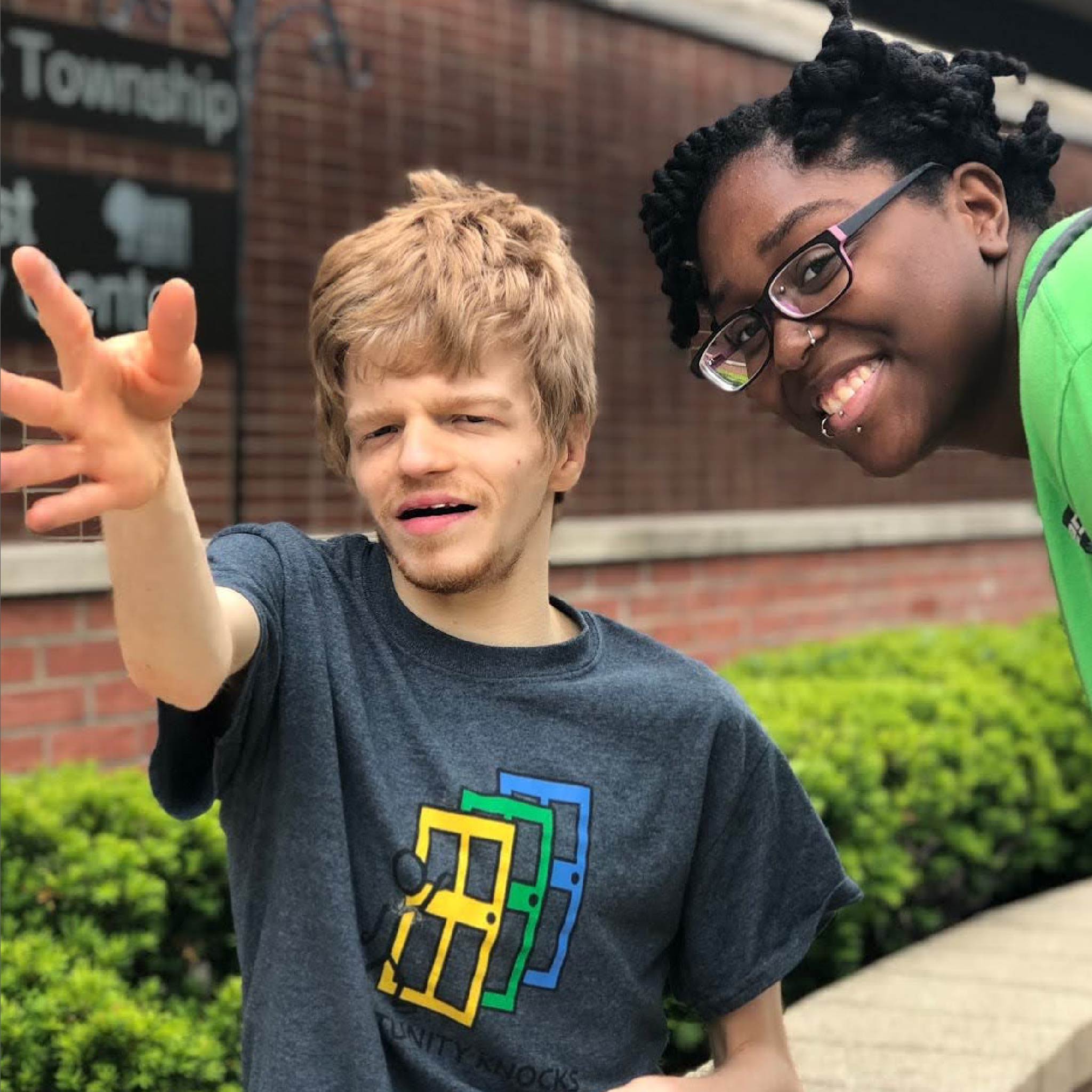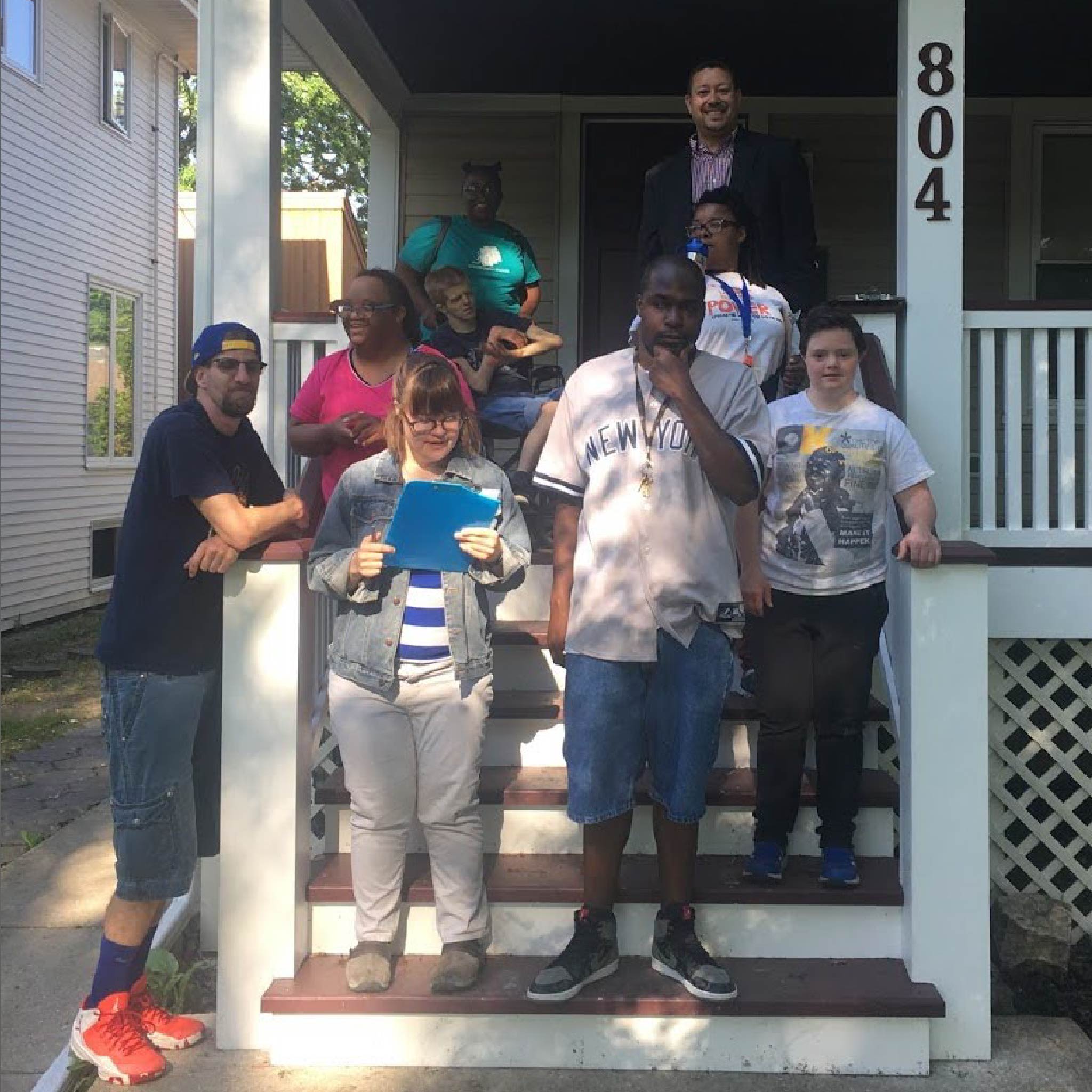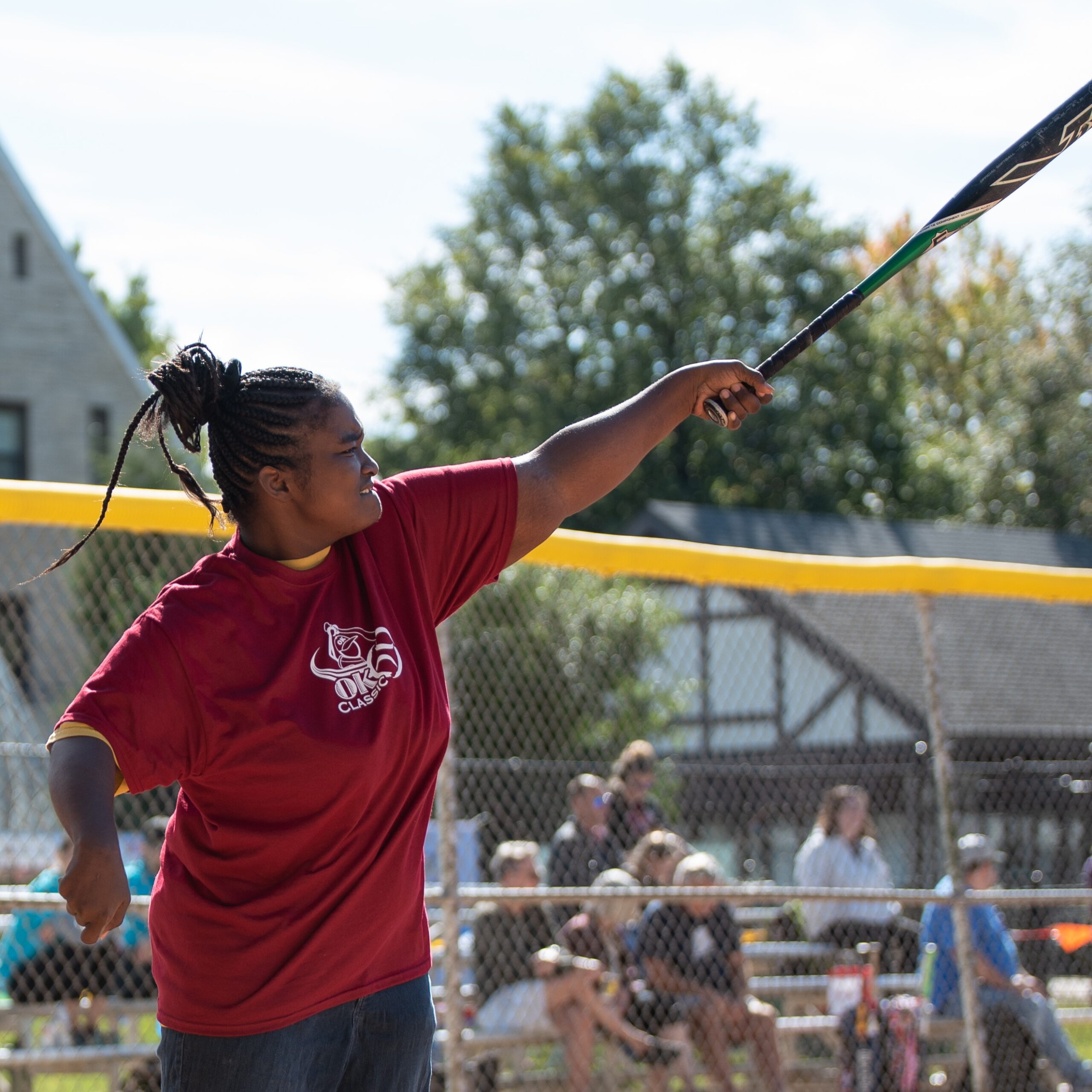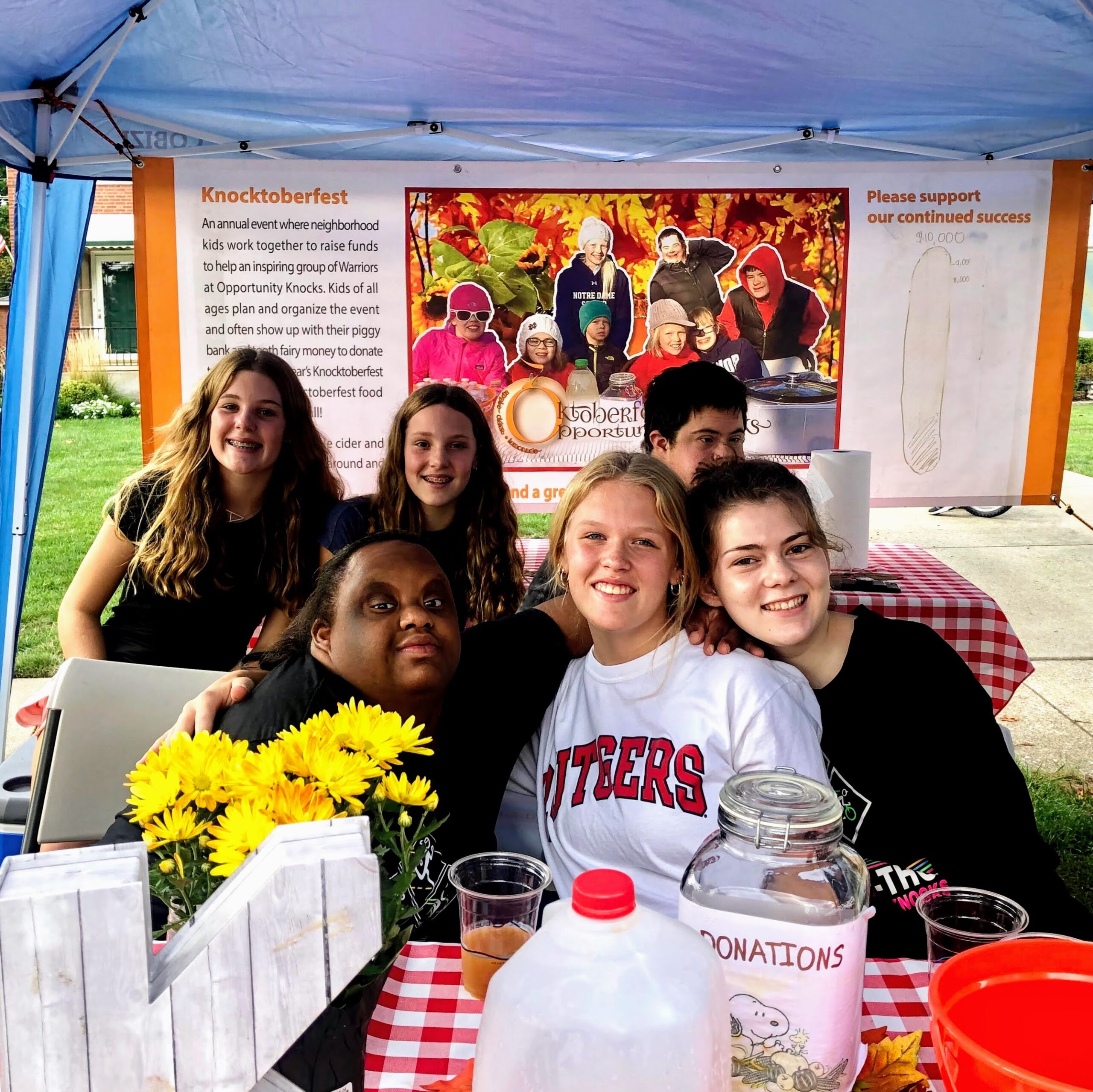Select Page
DO WITH, NOT FOR..
We focus on abilities, not disabilities and we welcome every body to join us in the OK Mission where we form a collaboration, built WITH, NOT FOR the Warriors, families and communities.
We view individuals living with intellectual and developmental differences as Warriors, champions of their own journeys. Rather than seeing ourselves as the providers of enrichment and empowerment, we see our role as partners in co-creating opportunities.

DON’T MISS A THING!
WHATS HAPPENING IN THE WARRIOR WORLD
Events, Campaigns, Registrations, Pop-Ups, & much, much more! Keep updated on everything happening currently at Opportunity Knocks!
CAMPAIGNS
2024 Annual Report
Each year we innovate, create and play witness to amazing things happening at Opportunity Knocks. We do our best to rally our team to create a full account of those stories through the annual report so that all of the amazing people who support the mission know their impact.
PROGRAMS
REGISTER FOR SPRING 2
Register now for the Spring 2 Session of OK Programs. We continue with the theme of Independence, which focuses on empowering Warriors to cultivate essential life skills that promote self-sufficiency and confidence. Registration Closes Friday, Feb 7 @ 5PM
ENTERPRISE
KO CATERING RETURNS
The Knockout Kitchen offers a variety of high-quality, hand-crafted culinary delights. In our return to catering we are launching the Lunchbox! It features delicious sandwich and side pairings! Check out our menu for more details and be sure to consider us for your next event!
SAVE THE DATE
THE 2025 OK GALA!
It’s almost that time of the year, Gala season! Save the date for this year’s Night for Opportunity Gala! Growth. We will be at a new venue as well, The Rockwell on the River! April 12th, 2025. Tickets & Opportunities coming soon.
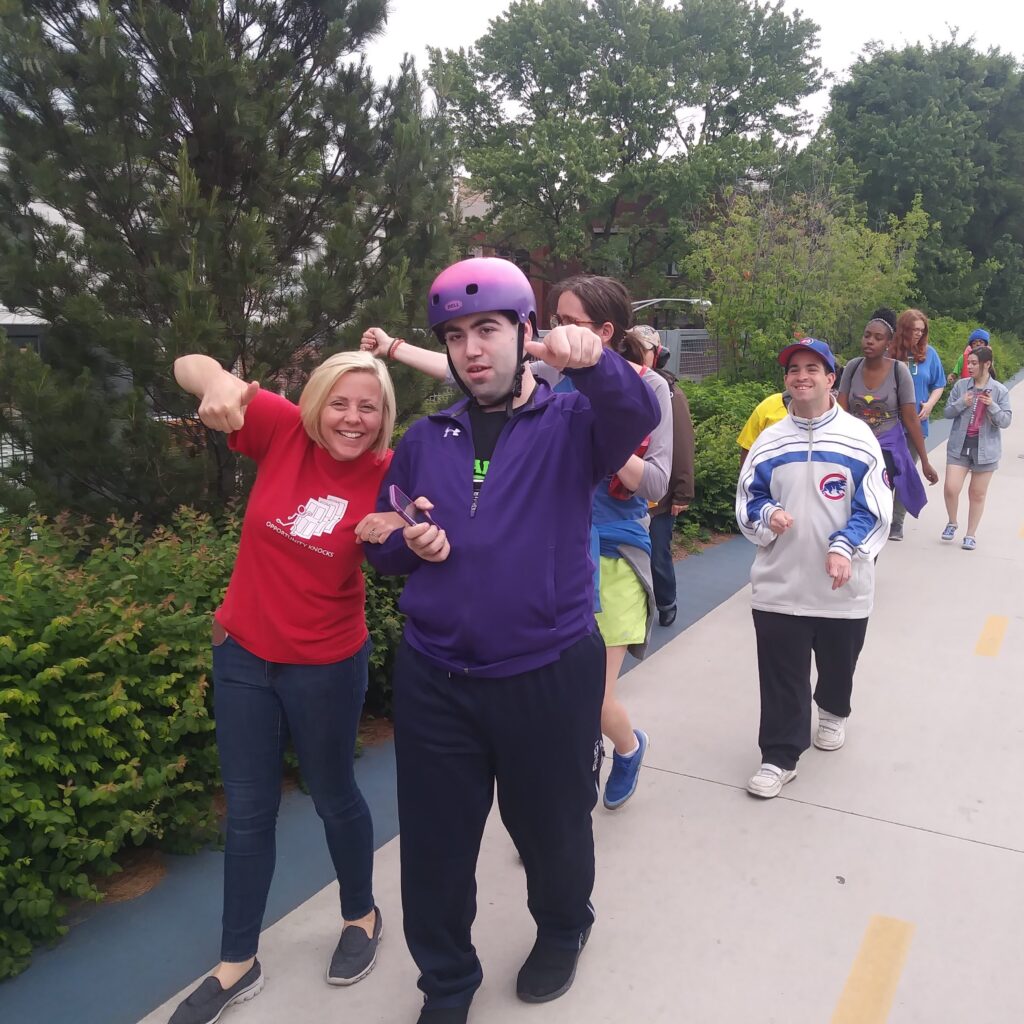

OUR MISSION
A COMMUNITY OF WARRIORS
Opportunity Knocks (OK) is a 501c3 non-profit organization serving communities in the near west suburbs of Chicago since 2009. OK was founded by families and embraced by a community that recognized significant opportunities to develop more substantial and responsive programs, support and partnerships that would build a community where people with different abilities would be more present with interdependent connections.
Our mission is to innovate and collaborate as a co-creator of programs, enterprise, and partnerships that contribute to developing a community where people with different abilities are fully included and able to live, work, learn, grow and pursue a life of their design.
We believe that communities are at their best when they are fully inclusive of every body.
WHO WE SERVE
Perseverance and strength through challenge has led us to nickname our participants Warriors. Our programs are geared toward Warriors of all abilities, age 14.5 and older.
WHERE WE SERVE
We are currently serving the communities in the near west suburbs of Chicago. As we grow as an organization, we will continue to grow our reach to different communities.
WHY WE SERVE
Opportunities for young people with I/DD are terribly limited. We believe that everyone has a place to be in the community and we are here to connect people to places.
Founded by Families &
Community of Warriors
Core Programs Offered
For the OK Warriors
Direct Service Hours Provided
Per Year at OK
Warrior to Staffing Ratio
(or better)

OUR PROGRAMS
WARRIOR FOCUSED. WARRIOR DRIVEN.
We believe in a dynamic, person-centered and community-based approach to programming that engages the voice of all Warriors, thrives on interdependent connections, encourages exploration, centers on holistic wellness and fostering healthy relationships.
DAY & EVENING ACTIVITY
OK PROGRAMS
Our dynamic, person-centered and community-based day program engages the voice of all Warriors, thrives on interdependent connections, encourages exploration, centers on holistic wellness and fosters healthy relationships. Activity offerings vary and evolve with Warrior input.
SUPPORTED EMPLOYMENT
ENTERPRISE
Our enterprise thrives in a blended work environment where people with all varieties of ability work together to run a successful food-based business. The Knockout Enterprise features three connected initiatives: the Knockout Farm, Knockout Pickles, and Knockout Catering.
INDEPENDENT LIVING
H.O.M.E.
Housing Opportunities & Me is a philosophy and a model of service built on the belief that everyone is entitled to a safe, decent place to live in a community of their choice with access to the services they need to help them live as independently and as self-sufficient as possible.
WELLNESS WARRIORS
WALK 2 RUN
We believe in the importance of wellness. We are committed to building total wellness in mind, body and spirit. Walk to Run Club is one of our featured initiatives in the pursuit of Warrior Wellness. Come lace ‘em up with us as we walk, roll and run our way to Warrior Wellness.

OUR TEAM
Opportunity Knocks exists to support people with different abilities as they live, work, learn, grow and connect within their community. We believe in a dynamic, person-centered and community-based approach to programming that engages the voice of all Warriors.
We also believe in a dynamic, person-centered workforce that includes the voices of all varieties of humans. We strive to build our team with that ideal in mind. Everyone has something to offer this mission. Come bring what you have. Click below to learn more about our team and the positions that are available at OK.
OUR COMMUNITY
A Collective Effort
As a grassroots organization, thriving in spite of an underfunded system of support from the State of Illinois, we have built OK on a foundation of community support. We rely heavily on a vast network of donors, volunteers, and partners to help support, sustain and grow our mission. We are blessed with a great network, but it is paramount that the network continues to grow. Come get involved.
DONATE
We are 94% privately funded. Without your support, we would not exist. Please consider supporting the Warriors today.
Volunteer
From program support members to event staff volunteers, corporate groups and internships, opportunities to connect abound.
Partner
Corporate sponsorships, program partnerships and all sorts of ways in between to connect your group with our group in mission.

OUR EVENTS
The OK mission was built through connections & funds raised via our special events. Over the years, we have aimed to take the financial pressure off of these events, while also aiming to maximize their potential as a forum to connect with our community.
We host two marquee events annually, along with many other smaller events throughout the year!
Semi-formal gala benefit | April
OK Gala
With the coming of Spring also comes the OK gala. Watch for the gala each year in April. First class food and drinks, great live music, and exciting auctions highlight this semi-formal affair.
Softball Tournament | September
OK Classic
When Summer ends we are hitting up the diamond for our Annual Softball Tournament! The much-anticipated event is home to friendly competition & fundraising for our spectacular Warriors.
Neighborhood Event | October
Knocktoberfest
Autumn brings fallen leaves & our beloved annual event where local kids work together to raise funds to help Warriors at Opportunity Knocks. Enjoy Apple Cider, great company & fundraising!

Upcoming Events
& CAMPAIGNS
Each year, Opportunity Knocks hosts 2 major events, that while are designed to be a great time for all, are crucial in funding the day to day operations. But, there are a lot more! Stay informed of ALL our events by following our events page.

Connect with us
Stay up to date with everything Opportunity Knocks. Follow us on social media and sign up for our emailing list!
